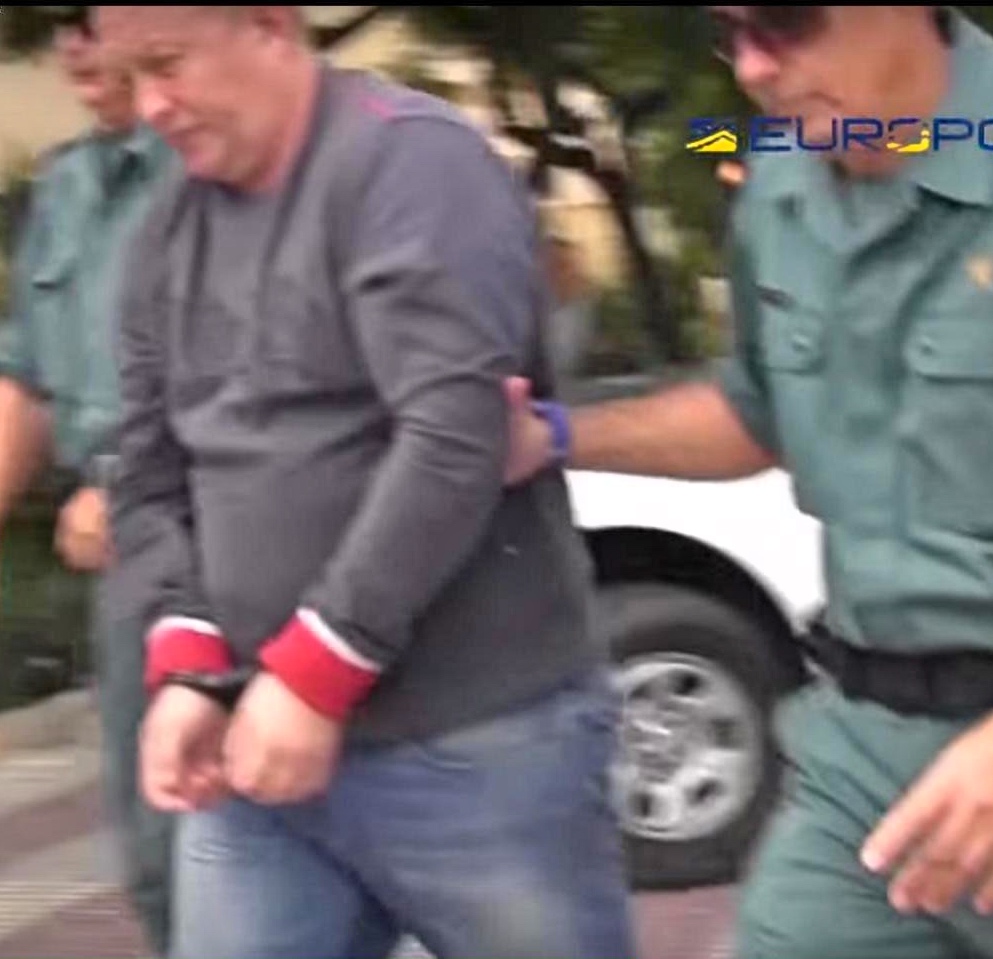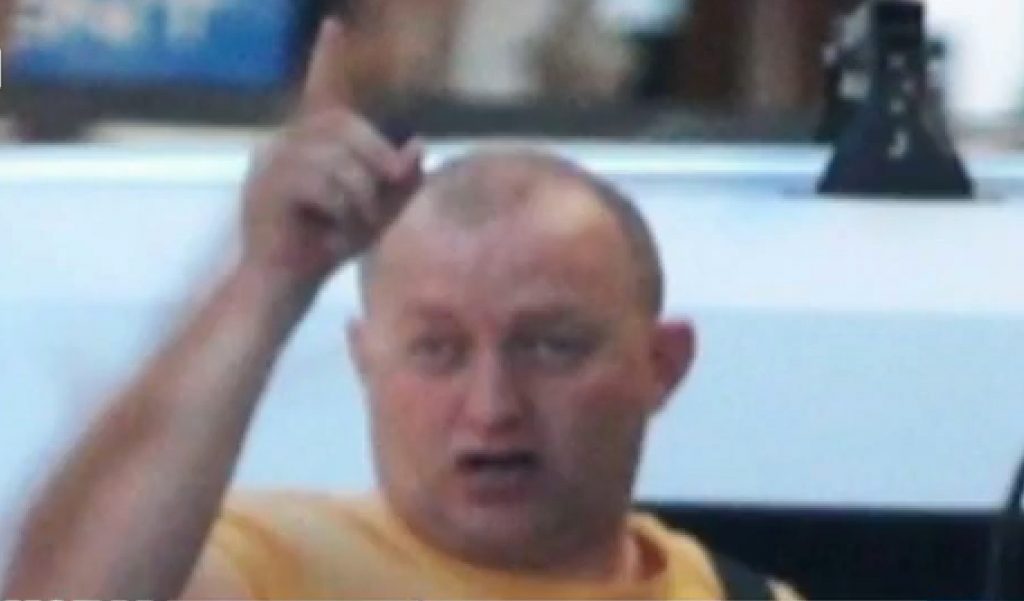IT BEGAN 15 years ago on November 24, 2002, at about 5.30pm when a group of five men gathered in the darkness at the front door of the dimly lit suburban home of a Dutch school teacher.
Four of the men waiting were Dutch nationals. The fifth man who stood at the front of the house on Uranusstraat, Groningen and rang the doorbell was a British national. In his hand, the British man held a strip of thin card torn from a packet of cigarette rolling papers on which was inscribed a Spanish mobile telephone number.
Gerard Meesters, a 52-year-old benign school teacher was at home with his 21-year-old son Koen when the doorbell rang. The Englishman asked: “Are you Mr Meesters, related to Janette?” He then began to explain that he had a message for Janette Meesters, Gerard’s sister. “It is very important you tell her to call this number,” the Englishman told him.
There was then some confusion as Gerard did not understand the man’s English very well. One of the Dutchmen impatiently pushed to the front to make the message clearer by explaining further in Dutch. “If you do not get her to call the number we will come back and it will not be to talk,” the man explained in Dutch. Gerard was shocked. His son Koen would later testify that he had never seen his father so frightened.
The group of men at the door then dissipated and walked around the corner to two waiting vehicles, one of which contained a sixth man, who was also British. The Dutchmen all got into one car and the British man joined his English colleague in a dark coloured Renault Kangoo. Police would later learn the British man who had gone to the door was a recently escaped prisoner called Daniel Sowerby and his driver was a Nottinghamshire man called Steven Barnes. Police would later learn that the two men took their orders directly from Robert Dawes, a British crime lord who was quickly building a violent criminal smuggling empire from his base on Spain’s Costa Del Sol. He was already being investigated by a large scale operation run by Nottinghamshire Police and backed by the National Crime Squad.
The car containing the Dutchmen included infamous gangster Gwenette Martha and his sidekick Etous Belsarang, head of the Amsterdam chapter of a biker group called Satudarah. Both were well known to police and to Robert Dawes, with whom they had done business. In fact Dawes continued to do business with Gwenette Martha right up until the Dutchman’s liquidation in 2014.
Four days after his scare on the doorstep, on November 28 2002, Gerard, who had left the house to stay with his son and daughter nearby, popped back to the house. He had alerted police to the threat a few days earlier and they did not know what to make of it. All Gerard knew was that his sister was in trouble in Spain but they had not spoken for several months. Just after 7pm Gerard logged into his computer. Then the doorbell went. As he opened the door a gunman rapidly fired eight shots from a handgun. Seven hit their mark. Gerard Meesters slumped in the hallway of his home. He was dead within a few minutes. Witnesses reported hearing popping sounds and seeing a black vehicle with its headlights extinguished moving off at speed nearby.
Later Daniel Sowerby would be convicted of the murder based largely on the testimony of his driver Steven Barnes. Sowerby received a life sentence and Barnes, who is now a free man in the UK, was sentenced to eight years by Dutch judges. Sowerby has consistently denied being the shooter but admitted his role in other parts of the story. The narrative everyone is agreed on is that Gerard, who was never involved in anything criminal, was shot dead because of the exploits of his wayward sister Janette and her friend, Madeleine Brussen. They became known as “Thelma and Louise” on Dutch phone taps which recorded Dawes’ associates talking about the shooting in the months afterwards and why Janette and her friend had gone on the run. It appears the gang believed that Janette and her friend had stolen part of a large consignment of cannabis, which Dawes had part ownership of. Gerard’s fate was sealed when he could not make contact with Janette and a decision was taken to end the talking and send a blood-soaked message.
For the past 15 years Koen and Annemarie Meesters have been unable to get closure on their father’s brutal murder because although the court recognised that Sowerby and Barnes were following orders given to them by the head of an organised crime group, the Dutch prosecutors felt there was not enough evidence to charge the leader of the group and the man they named in court and suspected of giving those orders; Robert Dawes.
Now, on the anniversary of Gerard Meesters’ death, his children have taken the extraordinary step of filing an official complaint naming Robert Dawes as the man who gave the orders and demanding that Dutch prosecutors look at the case again. Their hand is strengthened by a number of factors. Firstly they are being supported in their efforts by former and current Dutch police officers who handled their father’s case. There is also support from former officials in the Dutch prosecutor’s office, who believe collectively there are now enough details to put together a case against Robert Dawes. Thirdly the power which was once wielded by Dawes has diminished since he was arrested in November 2015 over a 1.3 tonnes load of cocaine shipped into Paris airport in September 2013.

The moment Dawes was led away from his Spanish villa to face extradition to France
Dawes will stand trial for that offence next year along with two footsoldiers and three members of the Camorra mafia. His incarceration has meant that the silence he could once demand from his footsoldiers and lieutenants is no longer guaranteed. It has meant that over time a clearer picture has emerged of the planning of Gerard Meesters’ murder and other crimes committed by the organised crime group led by Robert Dawes.

Dawes under surveillance in Spain in 2013
In the Dutch newspapers today Koen,36 and Annemarie,34, who I have been in regular contact with over the past four years, have spoken out about their frustration over the case and their hopes that the filing of the complaint will give the authorities no option but to review the case again in relation to Robert Dawes.
Koen told me: “More details have emerged over time and I believe there is a case when all the parts of the jigsaw are put together.
“If it turns out there is actually too little evidence and he is acquitted, we will have to accept this. Doing nothing is not an option for us. We can not live with that. ”
Roelf Wessels, the now-retired police officer who led the investigation into Gerard’s murder has also spoken out.
He said: “There was more than a reasonable suspicion of Robert Dawes involvement at the time. Dawes should have been arrested, but to date, the Public Prosecutor has never given permission. We have arrested suspects for less. ”
Koen and Annemarie Meesters also revealed that they have had contact with the man convicted of carrying out the shooting of their father – Daniel Sowerby – visiting him in prison to try to prise information from him about how he received his orders directly from Robert Dawes. Sowerby has been diagnosed with terminal cancer and may only have a short time to live.



